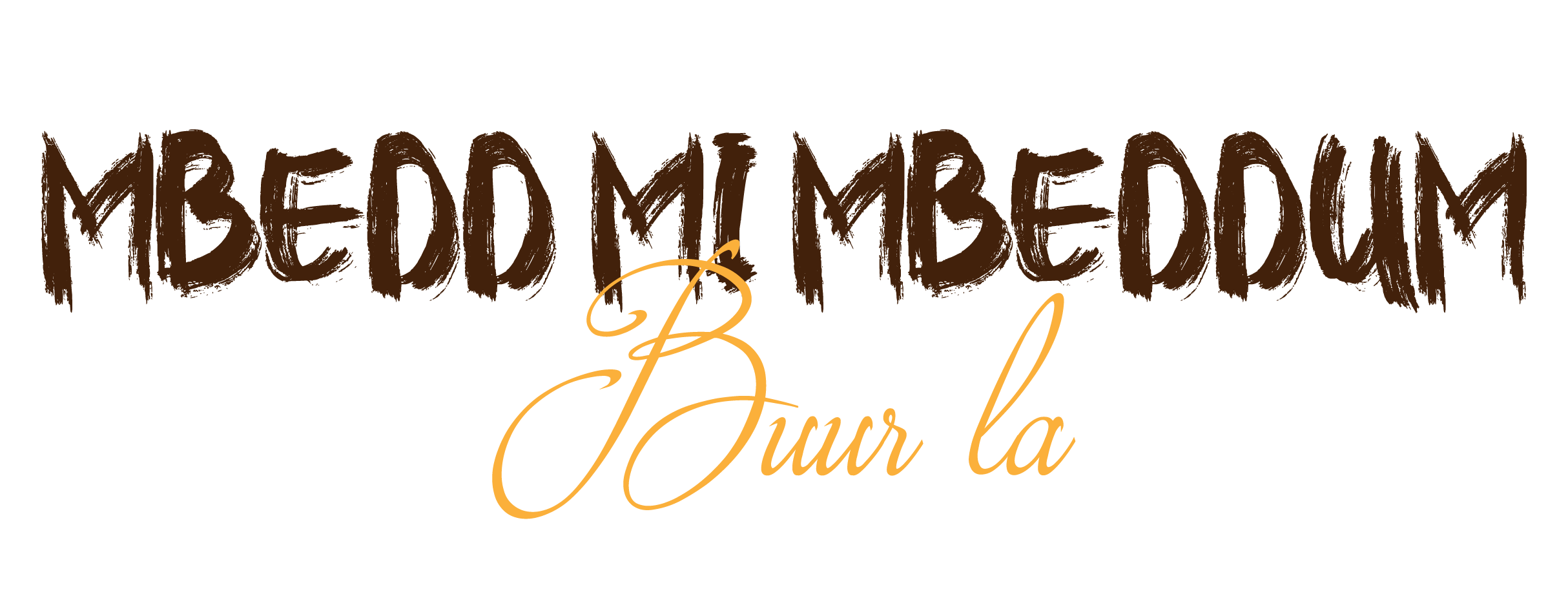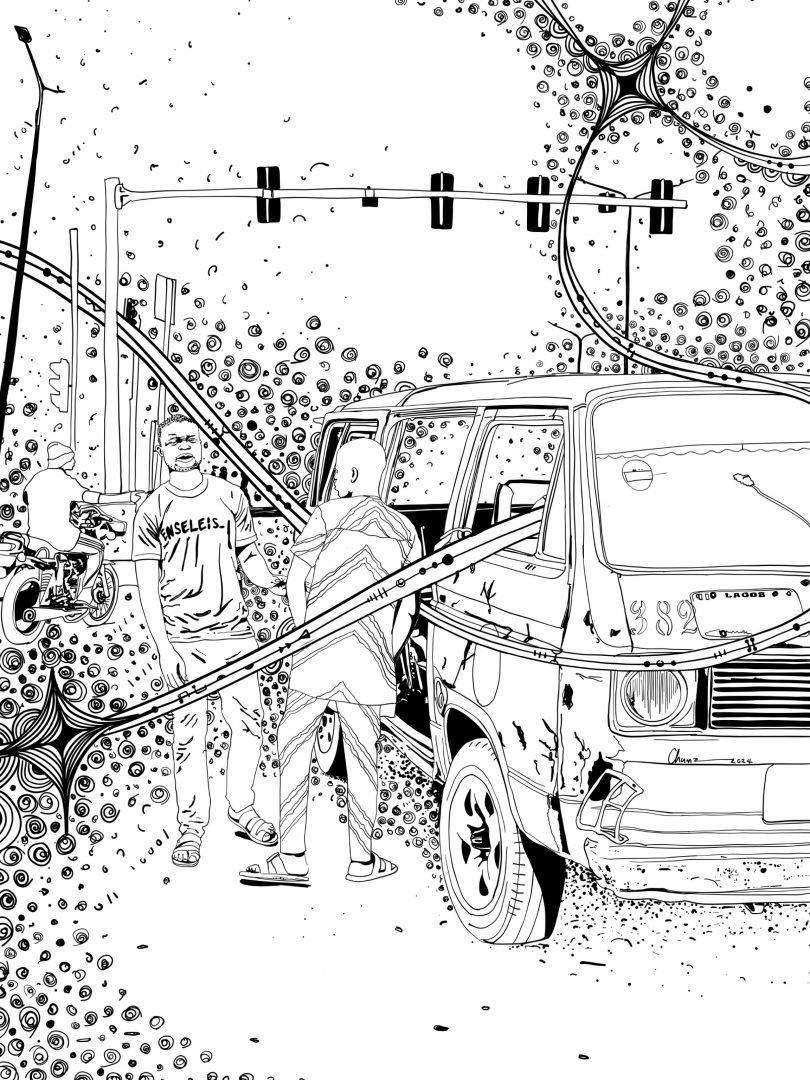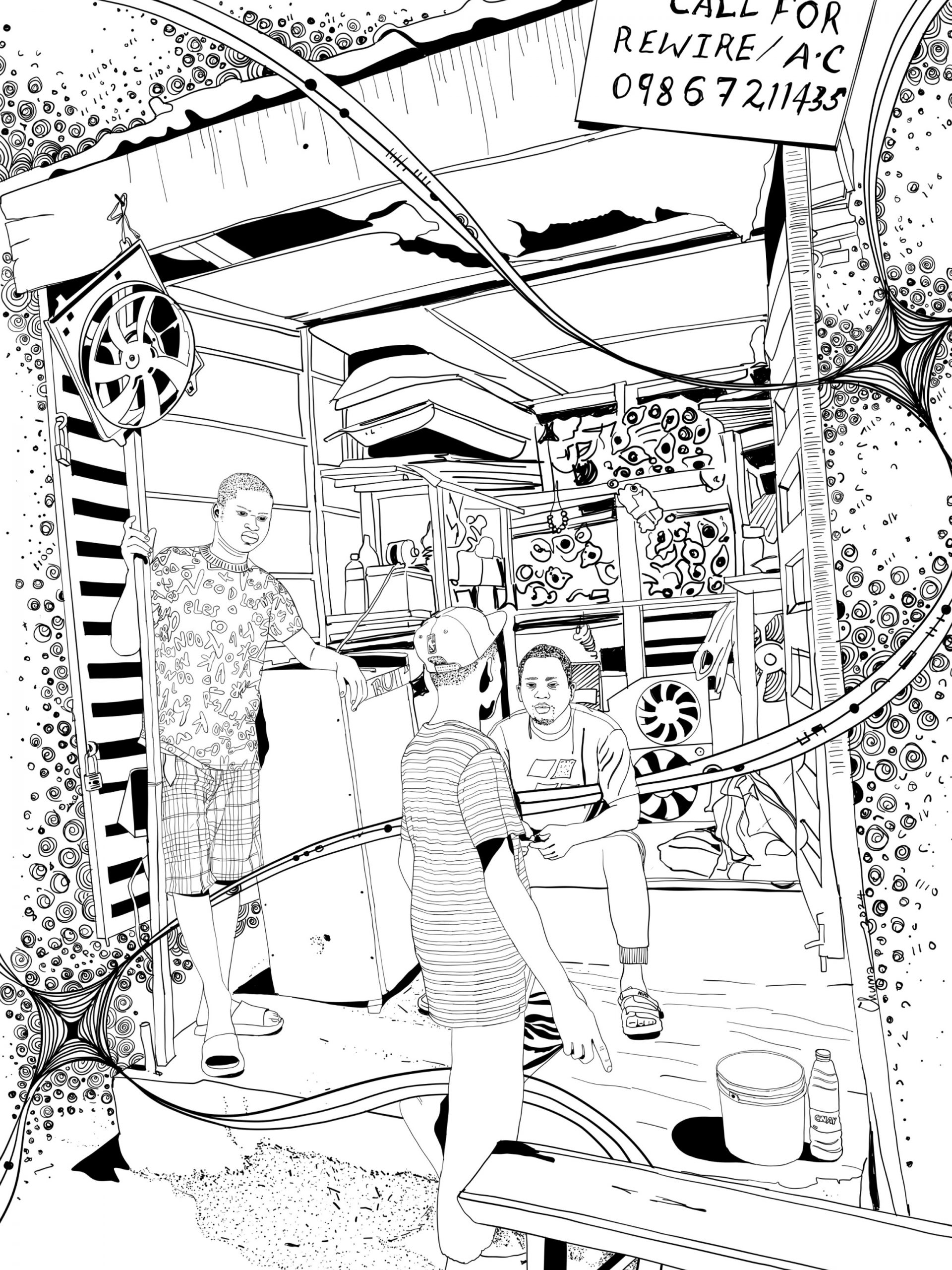Phygital ARTIST
CHÙMÁ ANAGBADO


PRESENTATION OF THE ARTIST
Chuma Anagbado’s project explores the intersection of Igbo culture and digital technology, creating ‘phygital’ artworks that combine traditional African elements with contemporary digital media.
This fusion aims to document and preserve cultural heritage while engaging in global digital dialogues. Using innovative techniques and materials, the project seeks to challenge perceptions, provoke reflection and stimulate cultural exchange.
It reflects on identity, migration and the impact of technology on cultural practices, contributing to a better understanding of globalised interconnections.
THE PIECES CREATED
DURING THE “MBEDD MI MBEDDUM BUUR LA” RESIDENCE
Onye Agboro (Street Tout)
The Street “Tout”, or Onye “Agboro” as it’s popularly known in Nigeria, is a troubling presence in many communities. These individuals operate outside the law, yet they seem beyond the reach of local authorities. They’re seen as rough and unpredictable, resorting to intimidation and violence to enforce their own rules.
Their main hustle? Extracting “taxes” from anyone doing business in their territory. Whether you’re a bus driver, a motorcyclist, or a market trader, they’ll demand their cut. Refusal is met with aggression, sometimes resulting in damage to property or physical altercations.
These touts see themselves as lords of the land, entitled to their spoils. They’re not just random troublemakers; they’re carefully chosen for their fear-inducing demeanor. They operate in a strict hierarchy, answering to a bigger boss who, in turn, has connections to regional authorities.
It’s a grim reality for commuters and business owners alike, living under the constant threat of these extortionists. But there’s hope on the horizon. As our world becomes more digitized and interconnected, we can envision a future where these street touts are a relic of the past. A future where governance is transparent, and community leaders work hand in hand to enforce structures to help eradicate future generations indulging in this uncultured act.
It’s incumbent upon us as individuals to foster acquisitions that help sanitize the future of life within our communities, which will, in turn, help build a better society at large. Unfortunately, survival is a call for the living.
Nwa Boi (The Apprentice)
The “Igba Boi” tradition, meaning “Apprentice,” is a cherished customary practice originating from the eastern region of Nigeria.
In this tradition, a master takes on the responsibility of teaching and training a younger individual in a specific trade they have honed over the years.
This arrangement typically begins with the consent of the apprentice’s direct guardian, or parents seeking to secure a promising future for their child. The master assumes full responsibility for the apprentice’s welfare, including housing, food, and comprehensive training in the chosen trade. This mentorship typically spans from 3 to 7 years, depending on the complexity of the skill being taught.
At the culmination of the agreed-upon apprenticeship period, during which the apprentice has mastered the craft, the master fulfills their commitment by facilitating the establishment of a similar business for the apprentice, enabling them to become independent entrepreneurs.
Additionally, the master continues to serve as a mentor, offering guidance and support whenever needed in the future. This tradition has transcended boundaries, being embraced and practiced across various ethnicities across Africa.
Education is a documented leverage for every participator, but skill is the perfect reward for those who have mastered it.


